
Holidays are a busy time, often filled with family and friends, holiday events, and travel or houseguests. Most pet owners enjoy involving their four-legged family members in their festivities, which can change a pet’s routine, diet, and environment. This can cause a pet to feel stress or develop various health problems that may need to be dealt with. Your regular family veterinarian may not be open during the holidays, so a trip to the emergency vet clinic may be needed.
During busy holiday times, it may seem like an unnecessary expense and use of time to go to the emergency veterinary clinic if your pet falls ill or has an accident. After-hours care at an emergency clinic often costs more than a visit to your family veterinarian during office hours. However, some conditions can be serious enough to cause permanent damage or even death. The best plan is to contact your veterinarian immediately for assistance.
Most veterinary offices have an answering service or recorded information about how to obtain emergency services. You may be able to go to your regular veterinarian or they may refer you to a nearby clinic that handles emergency vet needs. So, even if your regular veterinarian office is closed, you should start with a call to their office.
Once you speak with a veterinary staff member, you will be able to describe the problems so the vet can determine if an emergency visit is needed. If not, the vet can suggest the next steps to properly care for your pet.
As a general guideline, these nine conditions require an immediate visit to the veterinarian.
If your pet has been in any kind of accident, fight with another animal, or hit by a car they should be taken to the vet immediately.
Gums that are pale, white, or have a blue tint could mean your pet is in shock, suffering from low blood sugar, anemia, poor circulation, or bleeding internally.
If your pet eats os is exposed to something toxic, medication for humans, certain plants, or certain foods they need to be seen by a veterinarian right away.
A dog’s normal body temperature is 101-102 degrees and a cat’s normal body temperature is 100.5-102. If you are able to check your pet's body temperature and it is outside of these ranges, a visit to the vet is in order. A pet with an abnormal body temperature may feel hot or cold to the touch. The pet may shake or shiver and act lethargic from fever or low temperature.
When pets cry out continuously or loudly this could be a sign of pain. Even if you are unable to determine the cause of the pain, a vet should be consulted.
Coughing might be a sign of heart trouble or breathing issues.
Abdominal issues and internal bleeding can cause a bloated abdomen. Vomiting often occurs with these issues. Untreated, these problems could lead to the death of your pet.
Heavy breathing or struggling to breathe can indicate heart trouble or respiratory issues. Of course, it may be a much less severe problem, so a call to the veterinarian will help decide if a visit is needed.
Seizures can cause permanent nerve or brain damage. Contact your vet and prepare to visit the emergency clinic immediately.
Your family’s schedule is usually different during the holidays. People have time off work, there are events to attend, traveling might be necessary, and friends and family could be visiting. This may mean that special foods and sweets are being offered to your dog. All this activity creates many changes for your pet. Try to keep your pet’s schedule for feeding, sleeping, and activity as close to normal as possible. Make sure they are not being fed table scraps and treats by well-meaning guests that are not aware of your dog’s dietary needs.
Keep an eye on your pets. Check on them periodically to make sure their behavior, attitude, and appetite are good. Check that they are eating well, urinating, and defecating regularly, and being active as usual.
If you see any major changes in your pets, if they are involved in an accident, or meet any of the conditions listed here, contact your vet immediately.

The First 30 Days With Your New Kitten
The first month is full of changes and excitement for a kitten in a new home. Find out what to expect and what you can do for your new feline friend.
How Old Is Your Cat in Human Years?
As a cat ages, there are often behavioral and physical changes too. Find out how to convert cat years to human years and what to expect at each stage.
What to Buy for Your New Cat: A List of Essentials
Before you bring your new cat or kitten home, there are a number of things to collect or buy so your cat will feel welcomed like a family member.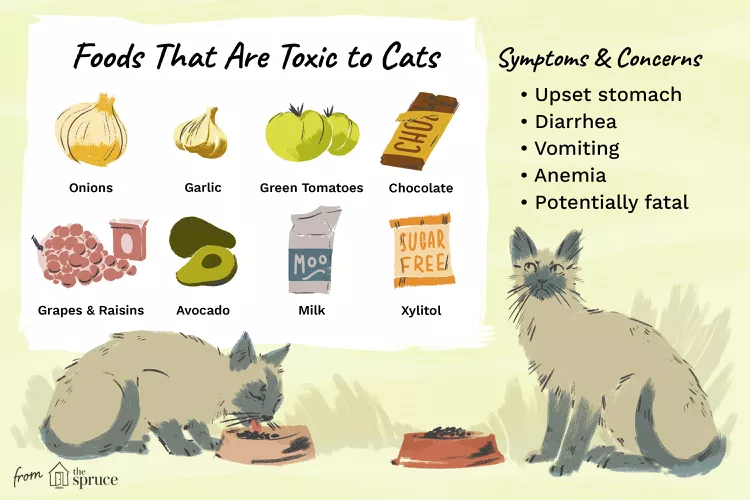
Human Foods That Are Poisonous to Cats
Many human foods are toxic to cats. Avoid feeding cats table scraps. Instead, feed a nutritious cat food created for their specific nutritional needs.
Cat Food Ingredients to Avoid
When checking the nutrition content of cat food, look for ingredients that are not healthy or show it is of poor quality. Avoid these 3 ingredients.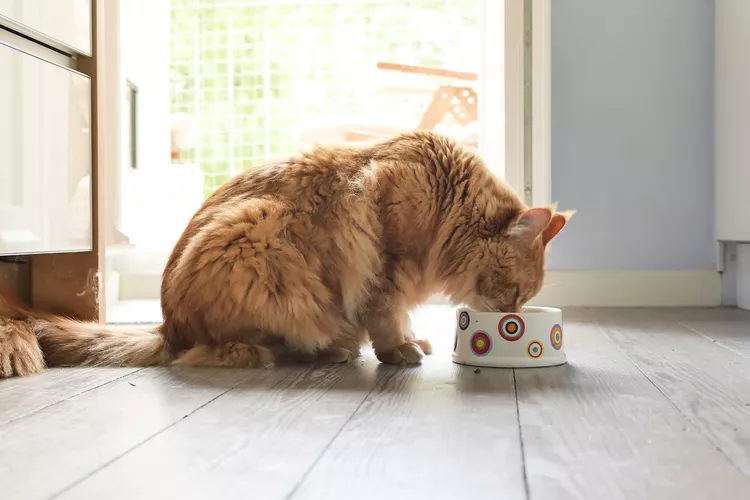
Should You Feed Your Cat a Raw Diet?
Learn the pros and cons of raw diets for cats, and find out how to choose a raw food diet for your own cat.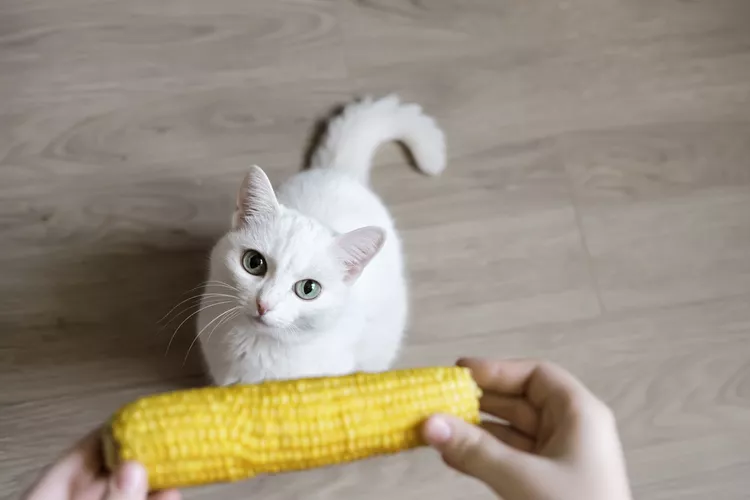
Can Cats Eat Corn? Here's What A Vet Thinks
Corn is a common ingredient in cat food and can be a safe treat for cats when fed in moderation. Find out more about how to safely feed corn to your cat.
10 Obscure, Little-known Canine Facts in Honor of National Dog Day
With National Dog Day upon us, it's time to celebrate everything about our favorite pets—even the weirder stuff. Here are 10 obscure facts about dogs you probably didn't know.
The Different Types of Pet-Friendly Workplaces
Discover the different types of pet-friendly workplaces and the benefits they offer employees. Learn how to create a pet-friendly workplace and the best practices for pet owners.
Exploring the Different Types of Pet-Friendly Beaches
Are you looking for pet-friendly beaches? Learn about the different types of pet-friendly beaches, their locations, and tips for visiting them with your pet.
Why Is My Dog Lethargic?
Lethargy can be a sign that something is wrong with your dog. Find out what may be causing this lack of energy and what you should do about it.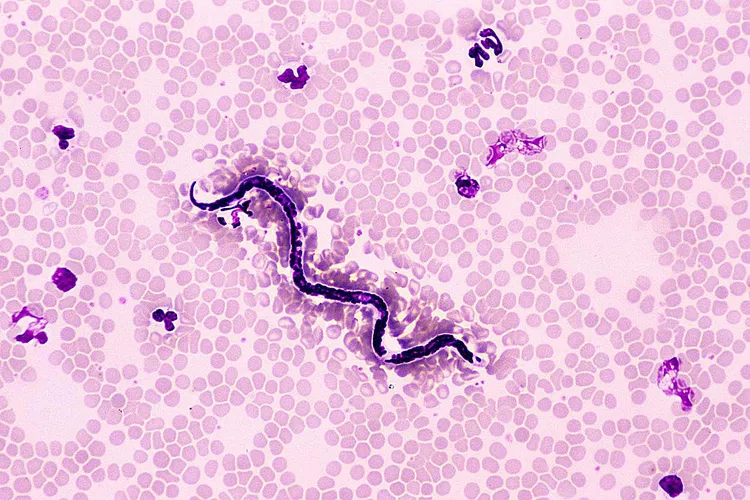
Medications to Prevent Heartworm Disease for Dogs
Heartworm disease is a serious risk for all dogs exposed to mosquitos. Find out about the products used to prevent Heartworm disease in dogs.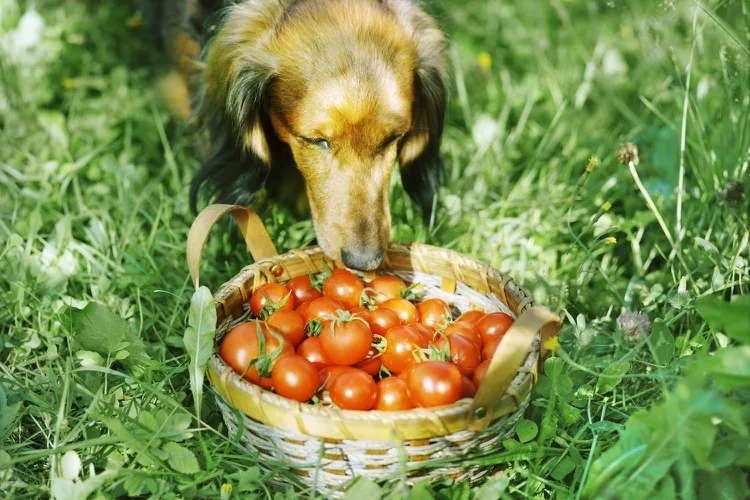
Can My Dog Eat Tomatoes?
You'll want to keep Fido out of your garden since the tomato plant is toxic, but you can safely offer him ripe tomatoes as a nutrient-packed treat.
15 Best American Cat Breeds
Several cat breeds, including the American shorthair and Bengal, have their origins in the United States. Learn more about these American cat breeds.
Why Do Cats Slap Each Other?
Cats can have some quirky behaviors—one of them being slapping each other. Why do they do this and what can you do to stop it?
Skye Terrier: Dog Breed Characteristics & Care
Learn all about the Skye Terrier, an elegant breed known for its friendly and even-tempered personality with classic terrier traits.
Sloughi: Dog Breed Characteristics & Care
Learn all about the Sloughi, an ancient dog breed known for its impressive running ability, slim stature, and affection toward its family.
English Setter: Dog Breed Characteristics & Care
Learn about the English setter, an excellent hunting breed for pointing and retrieving game. It's also a popular and affectionate companion dog.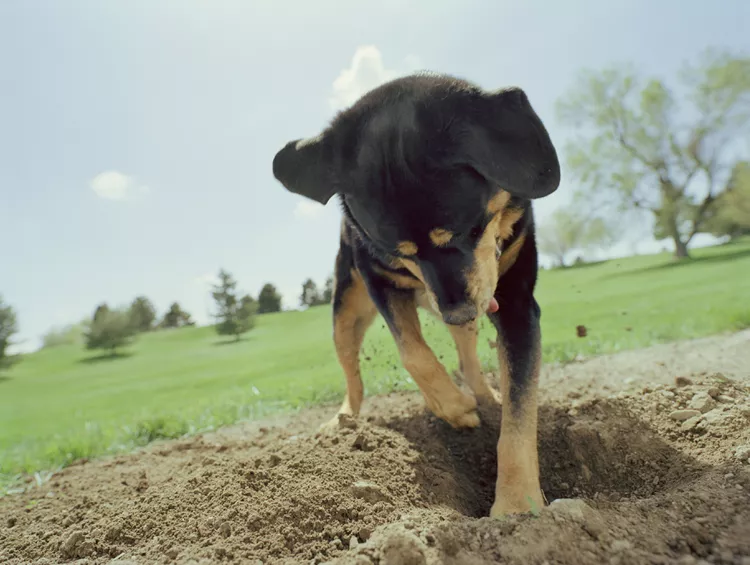
Why Dogs Bury Bones and Other Objects
If you give a dog a bone, he might bury it. Why is that? Learn about this burying behavior in dogs and what it means for your pet.
Reasons Why Dogs Run Away and How to Stop It
Dogs can escape, especially if they’re bored and not properly contained. Here are some techniques for stopping your dog from running away.